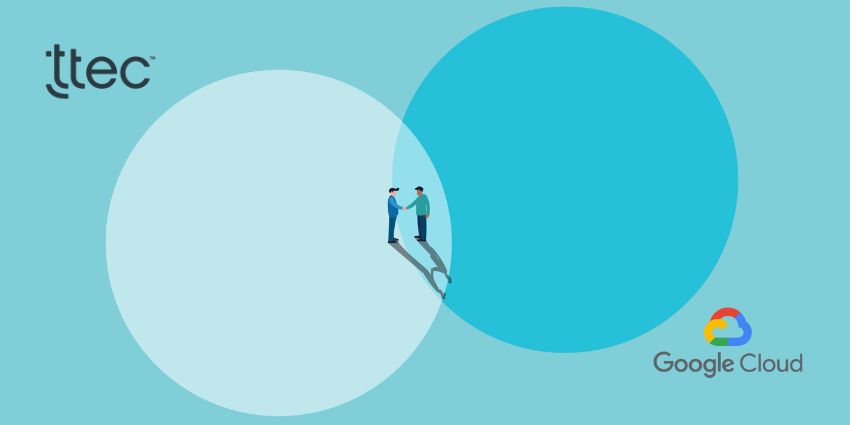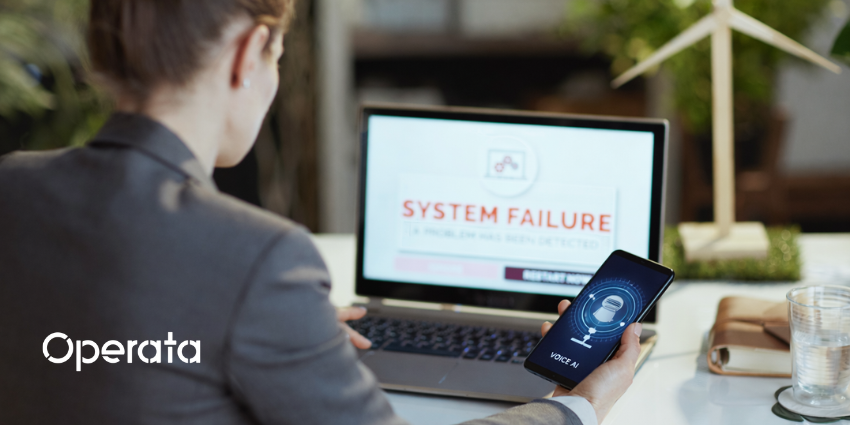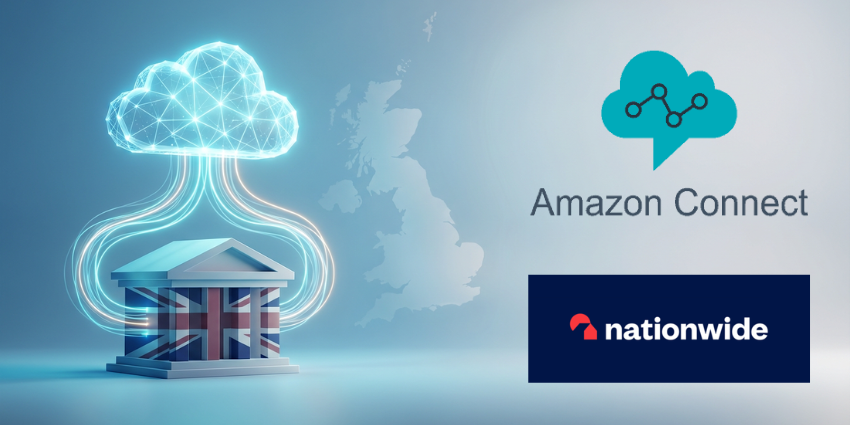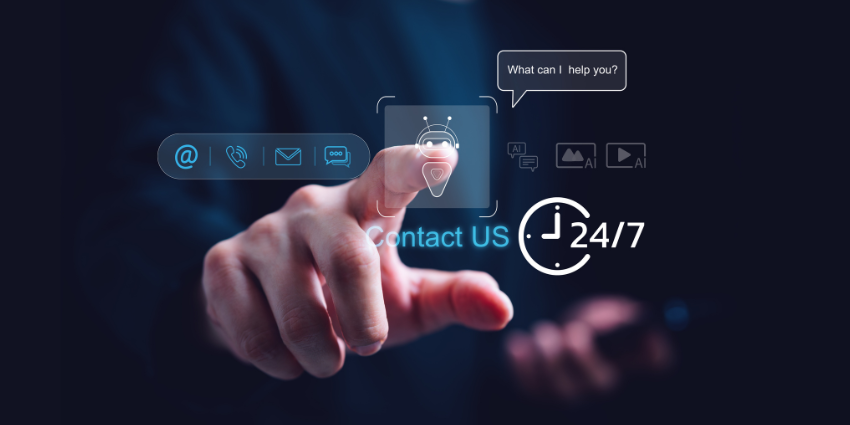Google has extended its partnership with TTEC, a prominent customer experience BPO.
In total, Google’s cloud infrastructure supports 50,000 of TTEC’s customer service agents.
Now, it has moved “a few thousand agents” across to the Google Customer Engagement Suite, while supporting several other platforms.
TTEC has also built an agentic solution for the augmentation of its human associates with Google, which is in use by thousands of agents today.
The ‘Let Me Know’ feature acts as a knowledge base that leverages Gemini and RAG to improve the accessibility of FAQ information for contact center agents, both human and AI.
Since its implementation, TTEC has achieved 60 percent self-service containment, up to $65 cost savings per agent, and an enhanced, “empathetic” customer experience.
Rob Dravenstott, SVP & CIO at TTEC, also revealed that 90 percent of users leverage the Let Me Know application on every call.
TTEC – also a “preferred launch partner of Google’s new Agentspace solution – has over 100 certified Google delivery experts across Google CCaaS, Contact Center AI, machine learning, cloud architecture, and more. Many of these helped to build the custom application.
However, the Google Customer Engagement Suite comprises out-of-the-box agent-assist applications that brands could use as an alternative, alongside the core CCaaS, conversational intelligence, and workforce engagement management (WEM) capabilities.
What the Google Customer Engagement Suite Brings to Contact Centers
Since its launch in September 2024, the Google Customer Engagement Suite has leveraged Gemini – Google’s large language model (LLM) – to deliver embedded GenAI capabilities.
The suite integrates a broad ecosystem of third-party solutions, including CRM, WEM, and telephony platforms, with Google supporting a bring-your-own telephony (BYOT) model.
Its core offerings encompass Blended Omnichannel Journeys, Multimodal Experiences, Rule and GenAI-Based Workflows, and Grounded GenAI.
Recent updates have introduced additional enhancements across the suite’s four foundational solutions: Conversational Agents, Google Cloud CCaaS, Agent Assist, and Conversational Insights.
Conversational agent updates include:
- A new no-code console, powered by Gemini models and enterprise-grade tools, lets non-technical users easily build advanced AI agents with just a few clicks.
- Gemini models now support human-like voices, emotional awareness, and real-time video input, allowing agents to deliver more adaptive and engaging experiences.
- Built-in connectors and API integrations enable AI agents to automate key functions like product searches, cart management, and checkouts across business systems.
As with Conversational Agents, Google’s Cloud CCaaS has also seen recent innovations.
These include:
- Web and Voice Co-Browse: This enables agents to view and navigate alongside customers in real time, reducing abandonment and improving satisfaction through more effective, collaborative support.
- Customizable Dashboarding and Reporting: Built-in Looker-powered tools provide supervisors with flexible dashboards and insights to better track, measure, and manage operational performance.
- Standalone Agent Desktop App: A customizable, out-of-the-box omnichannel interface that boosts agent productivity with integrated tools like generative knowledge assist and CRM connectivity.
Why Are Hyperscalers Going All in on The Contact Center?
Hyperscalers such as Google, AWS, and Microsoft are not just encroaching on the CCaaS field but actively trying to take it over.
Speaking in a recent LinkedIn video, Dave Michels, Lead Analyst at Talking Pointz, provided some insights on the trend, stating:
These giants see CCaaS as a golden ticket. It checks every box in their world domination checklist, and that spells trouble for the vulnerable providers.
Right now, in the transition to a cloud environment, hyperscalers are interested in CX partly due to the AI hype.
Most contact center companies boast of their AI capabilities, but none can match the strength and breadth of the hyperscalers.
While this might seem like a David and Goliath situation, the fact that hyperscalers such as Google have vast amounts of customer and corporate data tips the scales of this war in their favor.
More News from Google
Last week at its annual I/O developer conference, Google unveiled a revamped online shopping experience featuring virtual try-ons, price tracking, and an “agentic checkout” that could eliminate the traditional checkout page.
This followed the launch of a new search experience, now live in the US, which sets the stage for these innovations.
Elsewhere, the tech firm recently announced a partnership with Verizon to equip 28,000 customer support agents with a real-time, context-aware “personal research assistant.”
This tool delivers personalized answers to customer questions, reducing the need for agents to manually search large knowledge bases.
While similar solutions exist, Verizon’s assistant offers a more advanced and comprehensive experience.







